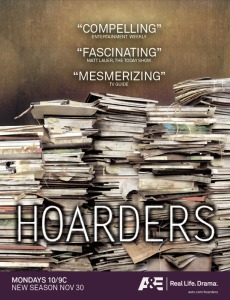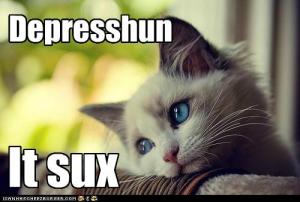You’re allowed to leave. You’re allowed to walk away from things that hurt you.
Nobody ever tells you that, so I will.
~~~
Tonight should’ve been a great night. SHAPE, a campus organization that I’m involved with–it stands for Sexual Health and Assault Peer Educators–was holding an event in which a documentary filmmaker screened and discussed her documentary, which concerns college hookup culture. The event was mandatory for SHAPE members, but I would’ve come anyway because the subject interests me.
I should’ve known what I was getting into, but I didn’t really…
The documentary took a critical view of hookup culture and interviewed various students, as well as some professors and campus health professionals. It also interviewed a few frat guys, who were, of course, allowed to remain anonymous with their faces blacked out in the film.
The things the frat guys said stuck with me.
I can’t remember exact quotes, but it was the typical stuff–about “picking and choosing” girls, about how alcohol makes them less likely to protest, about how a girl who’s slept with at least three of the frat brothers is called a “toaster” because she’s “toast.”
Suddenly, I found myself feeling increasingly uncomfortable and anxious. It was hard to breathe. It made me think about the past.
~~~
“Come on. You know you want it. You let me touch your tits before.”
“No, I don’t. I’ve already told you. I’m interested in someone else and that’s the only person I want to sleep with right now.”
“You know, you’re lucky. Some guys would just…”
“Would just what?”
He just smirks at me.
~~~
Nothing happened to me that night. Nothing physical, that is; he left me alone after spending three hours trying to manipulate me.
But emotionally, I was never the same again.
~~~
Another night, many months before that. My first college party. It was “registered” so there wasn’t even any alcohol.
I’m dancing with my friends. None of us have been drinking; we’re just happy to be at college and at a crowded, noisy dance party. He comes up to me and starts dancing with me. He’d clearly pregamed before coming to the house.
“You’re such a good dancer. Are you a music major?”
“No, journalism.” I smile.
He nods and we keep dancing.
The song ends, and we dance for another one.
Then he leans in to kiss me. I pull back.
“Sorry, I have a boyfriend at another school.”
“You have a boyfriend? You should’ve had that written on your forehead!”
He storms off. I’d enjoyed just dancing…
~~~
Another time.
We used to be good friends, or at least so I thought. We hung out all the time, talked about our lives and about school. We were attracted to each other, so one day we hooked up.
After that, things change. He only texts me at midnight, asking if I want to walk all the way to his frat and “chill.” He never asks me how I’m doing anymore. We stop talking after a while.
Months later, he messages me on Facebook. “So, honest question. Did I start to annoy you after we hooked up?”
I say, “No, it’s not that. I just got the impression that you were more interested in me for just sex rather than actual conversation or friendship.”
“Alright, fair enough.”
“I mean, is that true?”
“To an extent, yeah.”
~~~
I should consider myself lucky. If the estimates of unreported sexual assault are accurate, the fact that I’ve never been raped puts me in the minority. But, like most women, I’ve been catcalled, groped, followed down the street, pressured for sex, offered unidentified drinks, called a bitch for not acquiescing.
That’s why I don’t go to parties. That’s why I don’t participate in hookup culture. And no, to any radical feminists reading this, it’s not because I think it’s a woman’s responsibility to prevent herself from being raped. It’s because hookup culture makes me want to throw up, cry, hurt myself.
I choose to walk away from it all. You can choose that, too, if that’s what you want to do. Don’t ever let anyone convince you otherwise.
~~~
So I didn’t stay at the film screening tonight. I probably should’ve, because it was mandatory and all. Because my committee was planning to meet afterwards and I don’t want to have to explain why I left. Because, on some level, it was interesting to me. Because I wanted to introduce myself to the filmmaker and ask her for advice about researching this topic.
But in the end, I didn’t stay. I walked away. Because I felt so uncomfortable, because I just wanted to go home so much.
So I stood up, swung my bookbag over my shoulder, and walked right out.
I walked home through the warm night and I felt so free. I wasn’t happy, by any means, but I felt like I’d made the right decision. I listened to my iPod and started to breathe easier.
~~~
I don’t mean to imply that it’s always possible–or even desirable–to just walk away from anything that makes you uncomfortable. Sometimes you need to examine what’s happening and confront your fears.
But I’ve examined this through and through. I can’t change the things that have happened to me, and there’s just no way to make myself believe that those things are okay and that anyone should ever have to go through them. And I don’t see the need to keep reminding myself of them.
Some people might read this and think, “Gee, that’s stupid. What’ll she do, avoid every painful thing in life?”
Obviously, no. Some people think that just because some pain is unavoidable, we should just accept every painful thing in our lives and let it in. Perhaps one can build up an immunity that way.
But I disagree. The fact that there are so many unavoidable painful things in life only proves to me that we should avoid the ones we can. After all, even a psychologically healthy person goes through so much–death of loved ones, illness, financial difficulty, heartbreak–and psychologically unhealthy people have it even worse. Shouldn’t we find a little corner of life that’s happy and fight to defend it?
I think so. That’s why I opted out of hookup culture, and that’s why I opted out of tonight’s film screening. I went home to my beautiful apartment. After I finish writing this, I’m going to make a cup of tea and read my psychology textbook and plan my research project and talk to my friends online and maybe call my mom.
Because, in the end, those are the things that make me want to keep living for as long as I possibly can.




